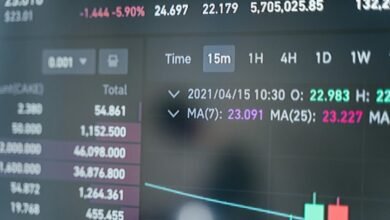The Caller You Can’t Ignore: 7578520784

The number 7578520784 has become a topic of intrigue and concern. Its origin remains unclear, prompting various theories. Recipients often experience anxiety when faced with the decision to answer or ignore the call. This raises questions about societal expectations surrounding communication. What impact does this have on daily life and personal relationships? Understanding this phenomenon may reveal deeper issues within modern phone etiquette and the complexities of unwanted communications.
The Origins of 7578520784
Although many phone numbers fade into obscurity, the number 757-852-0784 has garnered attention for its mysterious origins.
Investigating its phone number history reveals a tapestry of intrigue, with theories surrounding the caller identity ranging from telemarketers to elusive individuals.
Each contact raises questions about the number’s past and purpose, captivating those who seek to uncover the truth behind this enigmatic sequence.
Common Reactions to the Caller
What compels individuals to answer or ignore calls from the number 757-852-0784? The phenomenon often incites caller anxiety, as recipients weigh the potential outcomes of engagement.
Social pressure may further drive some to respond, fearing judgment for silence. Conversely, others may choose to ignore, valuing personal autonomy over perceived obligations.
This duality highlights the complex interplay between societal expectations and individual choice.
The Impact on Daily Life
The decision to answer or ignore calls from numbers like 757-852-0784 can significantly influence daily routines and interactions.
Caller anxiety often emerges from the uncertainty surrounding such calls, leading to heightened stress.
These daily interruptions can disrupt focus, diminish productivity, and strain relationships, as individuals grapple with the implications of their choices.
Understanding this impact is essential for navigating modern communication challenges.
How to Handle Unwanted Calls
Many individuals frequently encounter unwanted calls, prompting the need for effective strategies to manage such interruptions.
Implementing call blocking features on smartphones can significantly reduce disturbances. Additionally, reporting scams to relevant authorities fosters a safer communication environment.
These proactive measures not only enhance personal freedom but also contribute to a collective effort against persistent unwanted solicitations, ensuring a more peaceful daily experience.
Conclusion
In a world increasingly dominated by incessant phone calls, the enigma of 7578520784 serves as a microcosm of modern communication challenges. As recipients grapple with the choice to engage or evade, the psychological toll of these unsolicited interruptions can feel like a tsunami crashing into their daily routines. Understanding the origins and implications of such calls invites a deeper reflection on societal norms and personal boundaries, prompting individuals to navigate this complex landscape with both caution and curiosity.






